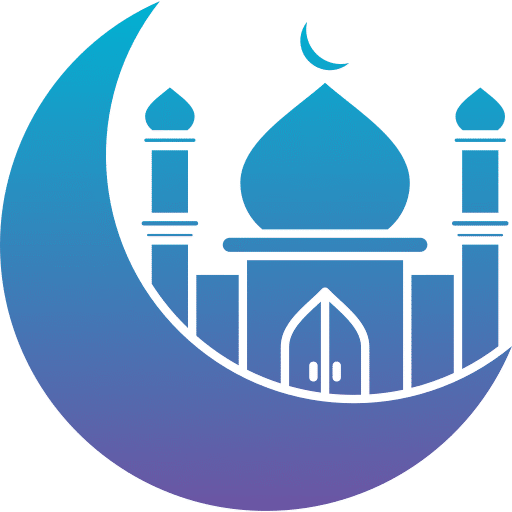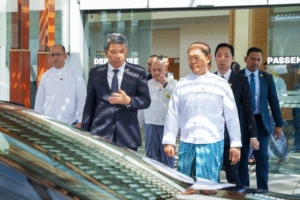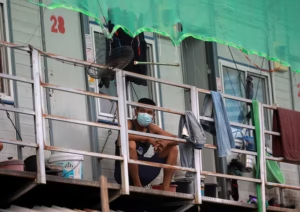(A reflection for unity, wisdom, and long-term resilience)
1. Understanding the Global and National Context
Across the world — from the US, EU, UK, Australia to India — political trends are shifting toward the far right. Islamophobia has unfortunately become a convenient political tool. History repeatedly shows that religious riots and fear-mongering are the trump cards of dictators and corrupt politicians.
When nations face crises — economic hardship, social unrest, or elections — unscrupulous leaders often use “patriotism” as a weapon to turn the majority against minorities. As Samuel Johnson wisely said, “Patriotism is the last refuge of scoundrels.”
Similarly, General Aung San warned:
“If we mix religion with politics, it is against the spirit of religion itself, for religion takes care of our hereafter and usually has nothing to do with the mundane affairs which are the sphere of politics. When, in the name of religion, superstition and injustice are upheld, society cannot remain indifferent.”
In such times, religious minorities are easily portrayed as ‘foreigners’ or ‘migrants’, and become scapegoats or sacrificial lambs. Myanmar’s Muslims must be fully aware of this recurring political manipulation and respond with wisdom, not anger.
2. Responding to Hate with Wisdom and Compassion
We must never fight fire with fire. As Buddha taught,
“Hatred never ceases by hatred, but only by love; this is the eternal rule.”
In Islam, the Qur’an teaches similarly:
“Good and evil are not equal. Repel evil with what is better, and your enemy may become your close friend.” (Surah Fussilat 41:34)
Responding to hate with love, understanding, and service is the only way to break the cycle of vengeance and bring genuine peace. The moral strength of Myanmar Muslims must be rooted in compassion — not reaction.
3. Turning Division into Strategic Strength
It is true that Muslims in Myanmar today are divided — Rohingya, Pathi, Panthay, Kamans, Indian-Burmese Muslims, and others. Even within each group, there are further divisions. Yet, this diversity can be a blessing in disguise.
Allah SWT may have allowed this situation for a reason. If all Muslims were united under a single organization or leader, it would be easier for dictators to suppress us through intimidation or bribery. But our current diversity — spread across political, social, and geographic lines — makes us more resilient and harder to eliminate.
Therefore, let Muslims be present on every side of the national struggle — within the Spring Revolution (NUG, PDFs, EROs, PRFs), within the bureaucracy, even within the armed forces or political parties like USDP. Let our loyalty be not to any faction, but to justice, truth, and the long-term welfare of Islam and Myanmar.
So long as our final destination and faith are one — to serve Allah, to uphold dignity, and to live peacefully in Myanmar — our differences are a source of strength, not weakness.
Let it be: All for one and one for all — for Islam, for peace, for Myanmar.
4. Practicing “Political Islam” in a Constructive Way
By “Political Islam,” we do not mean militant or extremist politics. Rather, it means engaged citizenship and community empowerment guided by Islamic ethics.
Muslims should take part in political, economic, and social activities that uplift not only our community but also our non-Muslim brothers and sisters. Examples include:
- Organizing free tuition for youth in English, IT, and vocational skills.
- Establishing free clinics, mobile health services, and supporting medical fees for the poor.
- Running charitable organizations that provide water wells, disaster relief, and micro-financing for small and medium enterprises.
- Encouraging economic cooperation and honest entrepreneurship.
Through these actions, we can demonstrate that Muslims are a blessing, not a burden, to Myanmar society.
5. Building Bridges Across Faiths
Finally, we must invest in interfaith dialogue and youth capacity building. Myanmar’s future peace depends on mutual understanding between Muslims, Buddhists, Christians, Hindus, and all communities.
Workshops, cultural exchanges, and joint volunteer activities can plant the seeds of trust. As the Qur’an reminds us:
“O mankind! We created you from a male and a female and made you into nations and tribes so that you may know one another.” (Surah Al-Hujurat 49:13)
Conclusion
The path ahead is long and uncertain, but filled with potential. If Myanmar’s Muslims can unite in purpose — despite diversity — and serve with compassion, education, and integrity, then our community will survive and flourish even in the face of hostility.
Our duty is not only to protect ourselves but also to contribute to the healing of our wounded nation.
In doing so, we will not only honor our faith but also the vision of a peaceful, multi-religious Myanmar that our ancestors once dreamed of.





